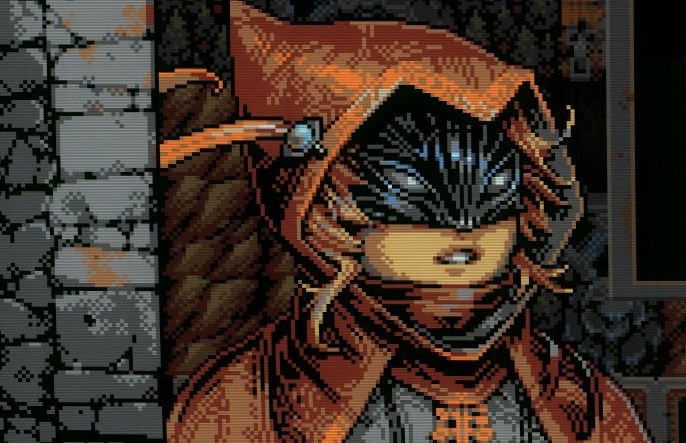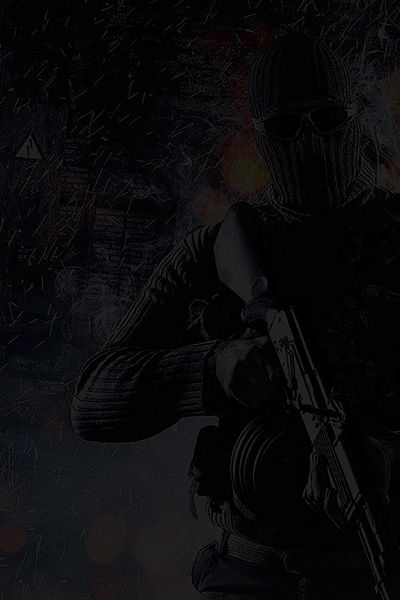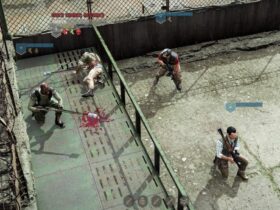Looping Hero Comments
📱
need to know
What is it? A non-interfering retro Roguelike full of mystery.
Expect to pay 15 dollars
release March 4, 2021
Developer Four quarters
Publisher Revolver
Review date Intel Core i7-4770K, Nvidia GeForce 3080, 16 GB RAM
multiplayer game? No
Associate steam
Loop Hero is the rehydration essence of more than a dozen ancient games that have been misremembered. From the moment the 16-color title screen disappears with the dramatic chip music, you will feel like you are playing some forgotten VGA era fantasy RPG. This game still contains some of the mysteries and difficulties of 1991, but in 2021 A mild modernization was carried out in 1988.
This is not nostalgia for nostalgia. Loop Hero provides a novel and extremely simple game format that is very fascinating, considering that you play it without interference most of the time.
You send one of the three hero classes (Warrior, Rogue, Necromancer) to an empty road and expedition repeatedly, otherwise it will be blank. When your little hero walks automatically on this stone road, you can fill the rest of the world by playing cards such as graveyards, battlefields, villages, grasslands or mountains one by one. These environmental fragments in turn will change the statistics of heroes or enemies, such as attack speed and health, and generate corresponding enemies, which will automatically fight when you pass through them: ghosts, wolves, bandits, hordes of spiders.
The essence of Loop Hero is to intelligently understand how to fill the blank board with threats. (Image source: Devolver)
Loop Hero adds this indirect action to the “fight, death, repeat” formula of roguelikes. You can’t decide where to move or what to attack; you can only build the level itself, and hope that the machine you put together is good enough to provide you with enough XP, resources and equipment to make you powerful, but not completely kill you. Each run becomes a small experiment: what if I drop a bunch of spider cocoons and sand dunes, which will reduce the health of all creatures? If I intersect the river card with the road itself, what will they do? Can my fighter survive two adjacent grids filled with giant sandworms?
Loop Hero has become a game about tending to a vicious circle, a glove that grows deadly shit forever, and each time you complete a loop, the level will increase. Make it too hard and you will be hit. Make it too easy, you may not be able to kill the boss or get enough resources to make this trip worthwhile: wood, food, and mysterious orbs. You need to build and upgrade new structures in the camp to cycle the hero’s persistence layer .
Considering that you have zero control over the battle, there are some great pockets of depth.
My favorite design element is the hidden effect that is triggered when you play certain cards. When you place nine mountain cards in a 3×3 grid, they will turn into a huge Mount Everest, greatly increasing the maximum HP. However, it’s surprising: the harpy now lives on the hill you built. This is a challenging type of enemy that will fly to a random part of your board every few days. If you play the tenth mountain or rock card, a goblin camp will randomly appear on the road, creating some nasty, fast-attack enemies.
These surprises are random, telegraphic, and pleasant. It’s refreshing to play a game that doesn’t even hint at how to unlock some of its powerful effects. But when I work for 15 or 20 hours, I just want more such surprise interactions. Unfortunately, they are not evenly maintained throughout the four chapters of “Activities.”
Loot heroes, more like
The other side of Loop Hero’s alternate interactivity is changing equipment. Changing helmets, shields, and enchanting spears is almost an ongoing task. The inventory is permanently fixed on the screen. When you kill a monster, new equipment with different rarities will pop up from your inventory for consideration. It is both fun and effective in practice. It is a highly refined version of action role-playing games such as Diablo: Would you rather have 25% attack speed or 15 defense? Then, a few seconds later: here are some new boots with a high evasion rate-but is it better than increasing my critical strike rate?
One blow to all loot management is that, like its mysterious card effect, Loop Hero does not explain the relative value of each battle statistic. Especially for necromancers, I have to guess whether +4.3 “skeleton level” is as valuable as +24% “summoning quality”. Does increasing my own attack speed also make my skeleton attack faster? Not sure. Similarly, even though Loop Hero includes tooltips, some enemy skills are not easy to understand. It can be said that all these deficiencies in explanation are deliberate and nostalgic parts of retro RPG, without tutorials or holding your hand. I am worried that opening a wiki on Loop Hero might spoil its best surprises. Loop Hero’s in-game encyclopedia is a smart way to alleviate this confusion (as a bonus, be sure to unlock actual legendary passages of super mundane items, such as dressing tables).
Loop Hero does have some interesting class-specific nuances. Necromancer is my favorite course to play. Fighting with multiple enemies can turn into a pleasant, intense battle of attrition, and your necromancer will try to summon enough skeletons to soak. The thief can only get the loot after he reaches the campfire floor tiles, so you often hold your breath until you reach the finish line, praying that you can return there alive to recover and be prepared. Necromancers have obtained a unique amulet slot that provides them with a powerful HP over-shield, and this accessory is not affected by cards that lower the maximum HP.
Considering that your control of the battle is not the equipment you wear, these are great little pockets. I am a bit disappointed that the configuration I designed for Rogue far exceeds any configuration I designed for Warrior or Necromancer.
Back at the base, the encyclopedia section clarified the enemy’s abilities and the role of each card. (Image source: Devolver)
Loop Hero is a intensive experience of watching the numbers increase in video games, but it is very fascinating in this respect.
This style of play has something in common with the so-called idle and clicker games that have emerged in the past few years and the half-minute heroes of 2012. This is a delightful form, and perhaps the greatest success of Loop Hero is that it builds a home in the middle area between watching, planning and performing. Supporting every moment is some excellent music and sound design-scraping slashes, the hum of huge mosquitoes, the unlubricated sound of the resurrection of skeletons. I like the creepy little pipe organ that I hear every time I put the Vampire Mansion into a level. It is one of Loop Hero’s tough and bad guys.
This is what I want more intelligence and focus on the resurrection of the old game, every step of the adventure feels new and old. I managed to put more than 40 hours in this citation-dereference mini-game.
Today’s best deal
Find more articles in our categories Gaming & News ou encore Anime.
Thanks for visiting we hope our article Looping Hero Comments
, don’t forget to share the article on Facebook, instagram and e-mail with the hashtag ☑️ #Looping #Hero #Comments ☑️!














Leave a Review